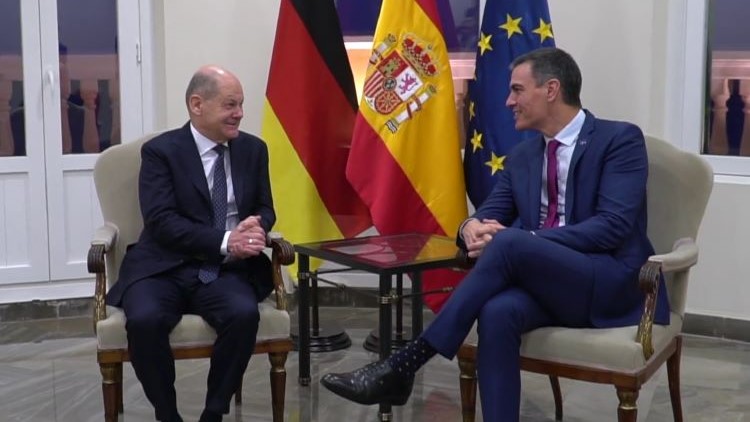Luis Ayllón
A communiqué issued yesterday afternoon by the Board of the Association of Spanish Diplomats (ADE) on the PSOE’s pact with Junts has provoked the irritation of many of its members, who consider the criticism to be too lukewarm.
Diplomatic sources assured The Diplomat that more than a dozen members of the ADE – which groups together more than 70% of the members of the Race – have requested their resignation after learning of the communiqué. The communiqué was apparently the subject of a tense debate within the association’s board between those in favour of limiting criticism and those who wanted a clearer defence of the work of diplomats.
Since the diplomat Javier Benosa published an article in the newspaper El Mundo on 2 November in which he called on his colleagues to act to try to stop the amnesty law being negotiated by Pedro Sánchez, there has been a debate within the ADE between the two positions. Some argued that it is a non-political association and therefore should not take a position on the matter. Others argued that it should do so because the agreement with the fugitive former president of the Generalitat Carles Puigdemont would have destroyed all the work done by the embassies and consulates to explain the illegality of the procès-legal process in different countries.
Finally, yesterday it was decided to issue a communiqué, which, according to the sources consulted, was subject to numerous modifications to try to reach a consensus text, with which several of the members of the Board expressed their disagreement, as they considered that it did not address the most important issues.
The ADE Board communiqué expresses its “concern” over the inclusion in the agreement of a clause “extending Catalonia’s direct participation in European institutions and other international organisations and bodies”. It adds that, like the recent proposal to create a “foreign action and European Union” body of the Generalitat of Catalonia, it “could undermine the exclusive competence of the State in matters of international relations established in article 149.1.3 of the Constitution”.
The ADE recalls that the Diplomatic Career is entrusted with the representation of Spain abroad “and that, in fulfilment of this mission, diplomats defend the interests of Spain as a whole and of Spaniards abroad”.
The ADE also expresses its incomprehension at the agreement’s assessment of the open judicial cases as a “relevant political impact” of “various resolutions of international bodies, such as the Working Group on Arbitrary Detention, the United Nations Human Rights Committee, the Court of Justice of the European Union, the European Court of Human Rights or the Parliamentary Assembly of the Council of Europe”.
The ADE communiqué does not mention at any point the amnesty or issues such as the decision to go to an international verifier, and dedicates its last paragraph to highlight the work carried out by Spanish diplomats since 2017, following instructions from successive governments “to explain and defend – it reminds us – the foundations of our democratic regime and our Rule of Law in the EU and in multilateral bodies, in the face of the international smear campaign encouraged against Spain by the independence movement”.
“This task has been carried out with notable success and we diplomats claim it with legitimate pride’, he concludes, but without making any allusion to the situation in which these diplomats now find themselves, or to Spain’s image, as Javier Benosa pointed out in his article and as some of the members of the Board demanded, who called for greater harshness in their criticism of the pact, according to the sources consulted.







